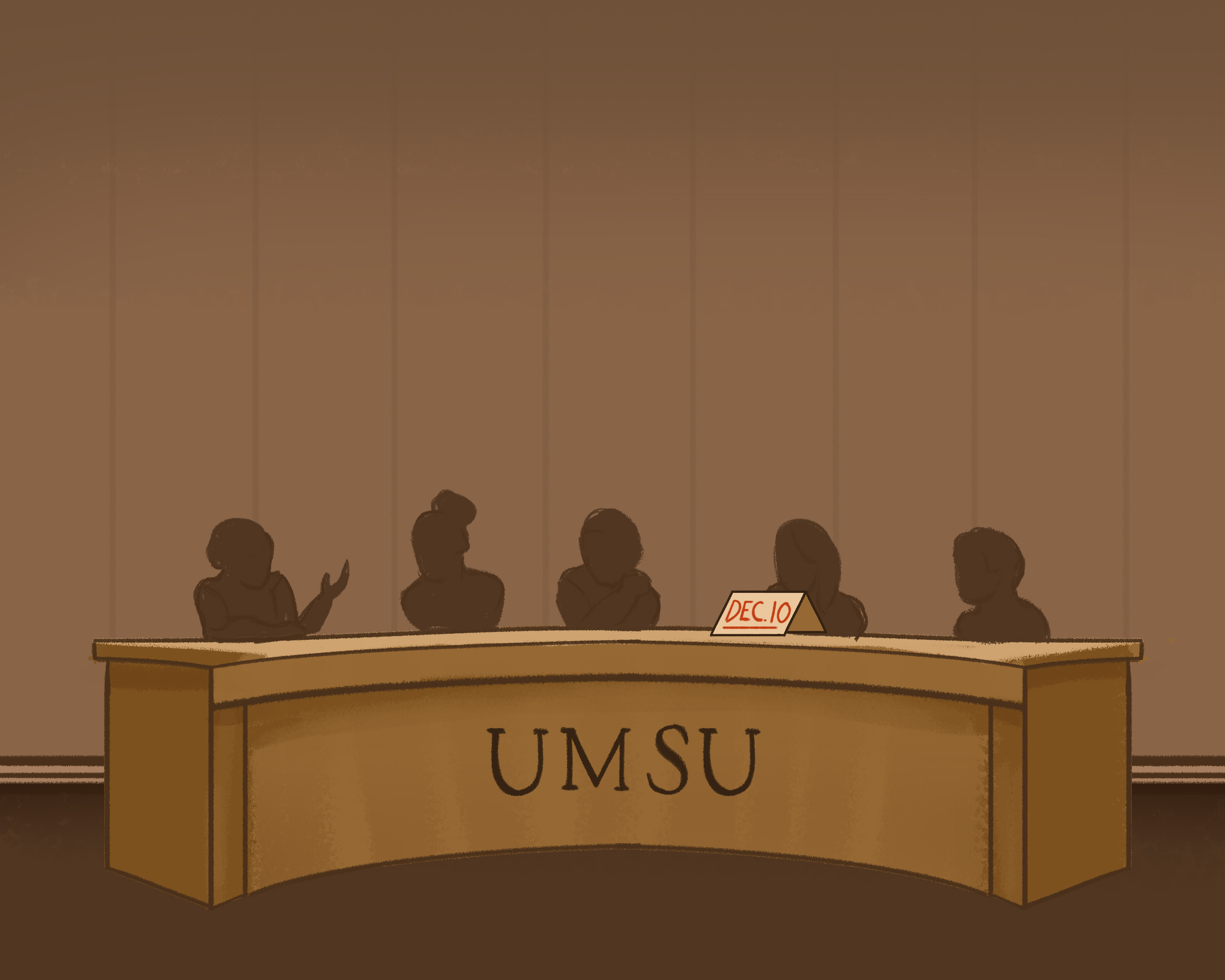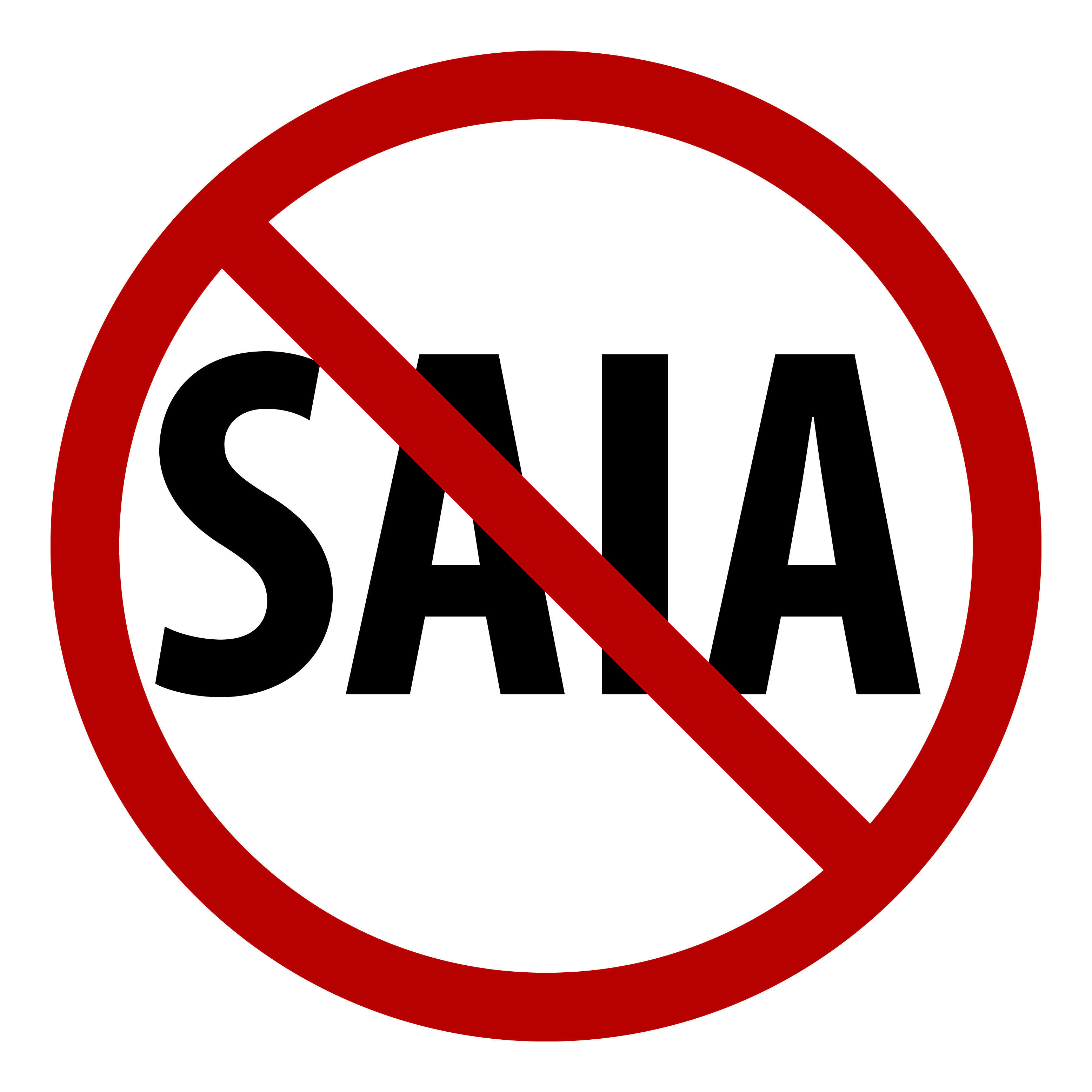At its final meeting of 2020, held Dec. 10, UMSU’s board of directors heard a presentation on anti-Semitism, a report from UMSU’s judicial committee and comments on UMSU’s future departure from the Canadian Federation of Students.
Condemnation of anti-Semitism motion passed
A presentation from Emily Kalo — third-year student in the faculty of science, senator for the Science Students’ Association and president and co-founder of Students Supporting Israel at the University of Manitoba — was delivered to motivate motion 0498, a motion brought to the board to condemn anti-Semitism by Kalo and Jewish student groups Hillel Winnipeg and Students Supporting Israel.
Motion 0498 was moved by the executive committee. The motion reads: “Therefore, be it resolved that the University of Manitoba Student Union (UMSU) at the University of Manitoba unreservedly condemn all acts of racism, discrimination, bigotry and violence against the Jewish community.”
“The reason I’m here is because I don’t think the University of Manitoba right now has a clear-cut definition of, first of all, how to prevent anti-Semitic incidents on campus, but more so what do in response to them,” Kalo said.
She stated that the resolution before the board was to “acknowledge, define and condemn anti-Semitism and more specifically it calls on UMSU to adopt the IHRA [International Holocaust Remembrance Alliance] definition of anti-Semitism.”
The government of Canada adopted the IHRA working definition of anti-Semitism in 2019 and the government of Ontario adopted it in October 2020.
Many concerns have been aired regarding the IHRA definition among proponents of free speech, critics of Israel’s government and supporters of Palestinian human rights.
Groups such as Independent Jewish Voices have also objected to the definition. The group describes itself as “a grassroots organization grounded in Jewish tradition that opposes all forms of racism and advocates for justice and peace for all in Israel-Palestine.”
The presentation advocated for the implementation of the IHRA working definition of anti-Semitism into the UMSU position statement book in the section pertaining to an equitable campus. The IHRA’s working definition of anti-Semitism is as follows: “Anti-Semitism is a certain perception of Jews, which may be expressed as hatred toward Jews. Rhetorical and physical manifestations of anti-Semitism are directed toward Jewish or non-Jewish individuals and/or their property, toward Jewish community institutions and religious facilities.”
“When I first read this definition and started to come up with this proposal, I felt it was important to not only base it off of myself but also on other present and past Jewish students who have studied at U of M,” said Kalo. “And unfortunately, they basically all had the same story to tell me where they had not only experienced anti-Semitism in Winnipeg as a whole, but specifically on campus.”
She said she believes the definition should be adopted sooner rather than later.“I don’t think that we need to wait for more visible and, as a result, more violent incidents to occur,” she said. “I think that we can protect our Jewish students […] and all of our minorities before the fact.”
The motion passed unanimously.
Judicial committee reports student concerns on UMSU executive professionalism
Judicial committee chairperson Anika Khan and vice-chair Judith Oviosun made a report to the board on the judicial board’s oversight of UMSU directors and executives. “We did not receive any formal complaints during the period of this report,” said Khan.
Recommendations were made to the board and the executive to address concerns found over the course of collecting information for the report.
“The first [recommendation] is maintaining professional conduct when performing UMSU-related duties and responsibilities,” said Oviosun. “This includes maintaining a certain level of professionalism when it comes to UMSU meetings, stakeholders, sending out email and also including not allowing personal conflict to influence any UMSU-related work.”
Oviosun said students had brought forward concerns surrounding a lack of professionalism from UMSU executives.
“We’ve seen, even based on what students have put forward, some emails or personal experiences [with UMSU executives] […] that’s one of the reasons why we think it’s very important as an executive, if you’re handling any UMSU-related issues, you should be professional in terms of your emails. Read over them and make sure the wording and the tone is appropriate and not coming off strong and rude.”
Other recommendations made include increasing accountability surrounding executives’ work hours, asking executives to have written documentation of their work, ensuring attendance of meetings related to an executive’s portfolio and ensuring the active delegation of tasks.
Leaving the Canadian Federation of Students
In her report to the board, UMSU president Jelynn Dela Cruz spoke about UMSU’s impending exit from the Canadian Federation of Students.
At its Nov. 26 meeting, the board voted 28-1 to leave the federation.
“My recommendation absolutely, especially with […] the board’s opposition to reaffirm membership, I do think that all efforts should be made as soon as the resources are available,” said Dela Cruz.





